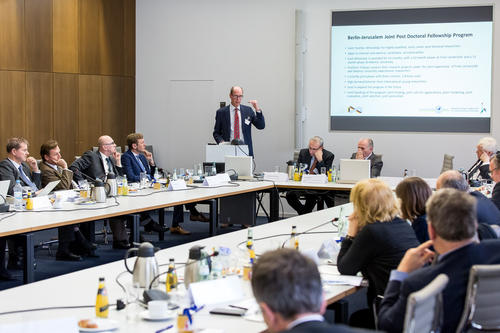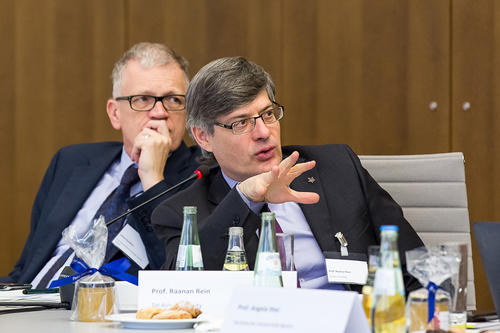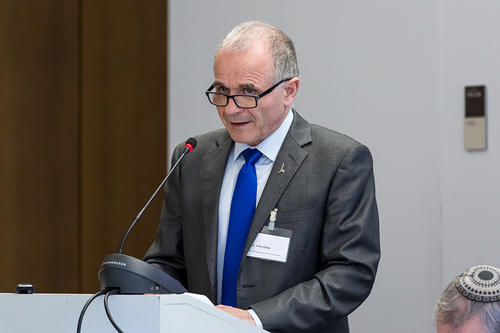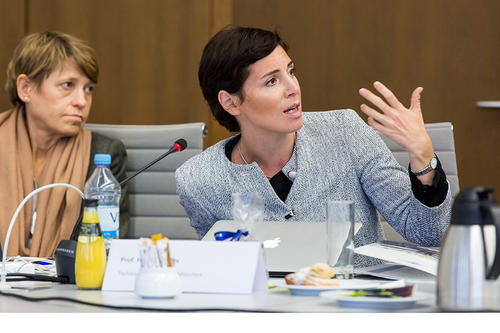Israeli-German Rectors' Meeting: improving cooperation between countries
First meeting of high-ranking university representatives from the two countries
Dec 08, 2015
Cooperating on doctoral training programs and supporting early career researchers were the focus of the meeting.
Image Credit: Frederic Schweizer
Professor Raanan Rein, vicepresident of Tel Aviv University was among the participants.
Image Credit: Frederic Schweizer
Professor Asher Cohen, rector of the Hebrew University of Jerusalem, presented a joint doctoral program of the Hebrew University and the Freie Universität Berlin.
Image Credit: Frederic Schweizer
The attendees emphasized the importance of their collaboration in research and science. In the picture: Professor Hana Milanov, TUM's Senior Vice President for International Alliances and Alumni.
Cooperating on doctoral training programs and supporting early career researchers were the focus of a meeting of Israeli and German rectors and presidents at Freie Universität Berlin. The Rectors' Forum organized by the German Rectors' Conference and the Association of University Heads, Israel (VERA), in collaboration with Freie Universität was the first meeting of high-ranking university representatives from the two countries. Against the backdrop of the 50th anniversary of the commencement of diplomatic relations between Israel and Germany, the attendees emphasized the importance of their collaboration in research and science. To date, this collaboration has made a fundamental contribution to the development of bilateral relations.
"A long-standing and intensive collaboration in research and science has established direct ties between Israel and Germany," explained HRK President Prof. Dr. Horst Hippler. He added that the HRK Higher Education Compass cites over 180 cooperation projects between Israeli and German universities. "As a result, Israel is by far the most important partner in the region for German higher education institutions," said Hippler.
Prof. Dr. Peter-André Alt, the president of Freie Universität Berlin, drew attention to the decades-long academic partnership between the two countries, which he believes was actually the precursor to their diplomatic rapprochement. According to Professor Alt, the network established within the past 50 years "does not just contribute to excellence in research; it helps to facilitate understanding between the two nations."
In their discussions, the university leaders discussed examples of good practice in internationalization and in designing doctoral training programs. During the course of the talks, HRK President Horst Hippler emphasized the nature of doctoral training as independent research work that makes a significant contribution to a discipline's development of knowledge and that is documented in written work.
In a joint declaration, the participants urged the improvement of cross-border career paths after doctoral training. Bilateral research groups should also receive support and funding should be available to ensure the mobility of doctoral candidates from both countries.
View the Joint Declaration
www.hrk.de/uploads/media/Statement_HRK_VERA_11_2015.pdf
This text was originally published on December 2, 2015, as a press release.




